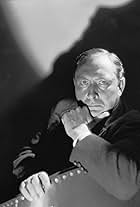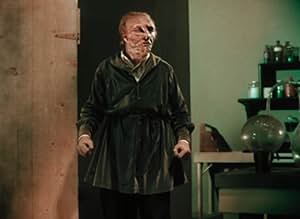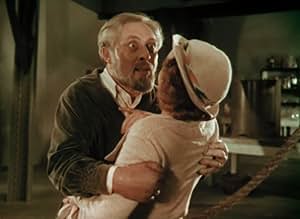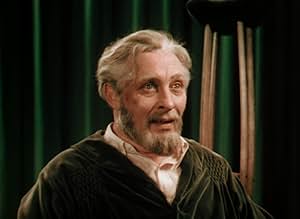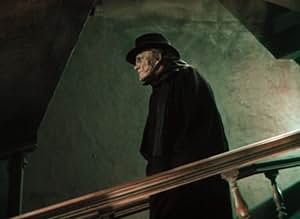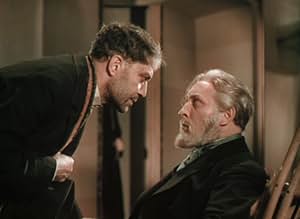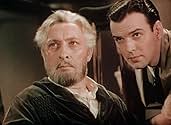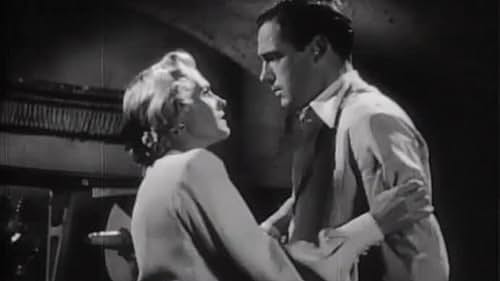Lionel Atwill(1885-1946)
- Actor
- Additional Crew
Lionel Atwill was born into a wealthy family and was educated at
London's prestigious Mercer School to become an architect, but his
interest turned to the stage. He worked his way progressively into the
craft and debuted at age 20 at the Garrick Theatre in London. He acted
and improved regularly thereafter, especially in the plays of
Henrik Ibsen and
George Bernard Shaw. Atwill came to
the US in 1915 and would appear in some 25 plays on Broadway between
1917 and 1931, but he was already trying his hand in silent films by
1918. He had a sonorous voice and dictatorial British accent that
served him well for the stage and just as well for sound movies. He did
some Vitaphone short subjects in 1928 and then his first real film role
in The Silent Witness (1932) (also
titled "The Verdict").
That voice and his bullish demeanor made Atwill a natural for a spectrum of tough-customer roles. As shady noblemen and mad doctors, but also gruff military men and police inspectors (usually with a signature mustache), he worked steadily through the 1930s. He had the chance to show a broader character as the tyrannical but unforgettable Col. Bishop in Captain Blood (1935). It's hard to forget his Inspector Krogh in Son of Frankenstein (1939), wherein he agrees to a game of darts with Basil Rathbone and proceeds to impale the darts through the right sleeve of his uniform (the character sported a wooden right arm). And he sends himself up with rolling and blustering dialogue as the glory-hog ham stage actor Rawitch in the classic To Be or Not to Be (1942) with Jack Benny. However, Atwill effectively ruined his burgeoning film career in 1943 after he was implicated in what was described as an "orgy" at his home, naked guests and pornographic films included--and a rape perpetrated during the proceedings. Atwill "lied like a gentleman," it was said, in the court proceedings to protect the identities of his guests and was convicted of perjury and sentenced to five years' probation.
He was thereafter kept employed on Poverty Row with only brief periods of employment by Universal Pictures, while the rest of Hollywood turned its collective back on him. He is more remembered for the horror films generally than for better efforts, but they have fueled his continued popularity and a bid by the Southern California Lionel Atwill Fan Club to petition for a Hollywood Blvd. star (he never received one).
That voice and his bullish demeanor made Atwill a natural for a spectrum of tough-customer roles. As shady noblemen and mad doctors, but also gruff military men and police inspectors (usually with a signature mustache), he worked steadily through the 1930s. He had the chance to show a broader character as the tyrannical but unforgettable Col. Bishop in Captain Blood (1935). It's hard to forget his Inspector Krogh in Son of Frankenstein (1939), wherein he agrees to a game of darts with Basil Rathbone and proceeds to impale the darts through the right sleeve of his uniform (the character sported a wooden right arm). And he sends himself up with rolling and blustering dialogue as the glory-hog ham stage actor Rawitch in the classic To Be or Not to Be (1942) with Jack Benny. However, Atwill effectively ruined his burgeoning film career in 1943 after he was implicated in what was described as an "orgy" at his home, naked guests and pornographic films included--and a rape perpetrated during the proceedings. Atwill "lied like a gentleman," it was said, in the court proceedings to protect the identities of his guests and was convicted of perjury and sentenced to five years' probation.
He was thereafter kept employed on Poverty Row with only brief periods of employment by Universal Pictures, while the rest of Hollywood turned its collective back on him. He is more remembered for the horror films generally than for better efforts, but they have fueled his continued popularity and a bid by the Southern California Lionel Atwill Fan Club to petition for a Hollywood Blvd. star (he never received one).
